Europe's Dark Core: The Neo-Nazi Movements on the March
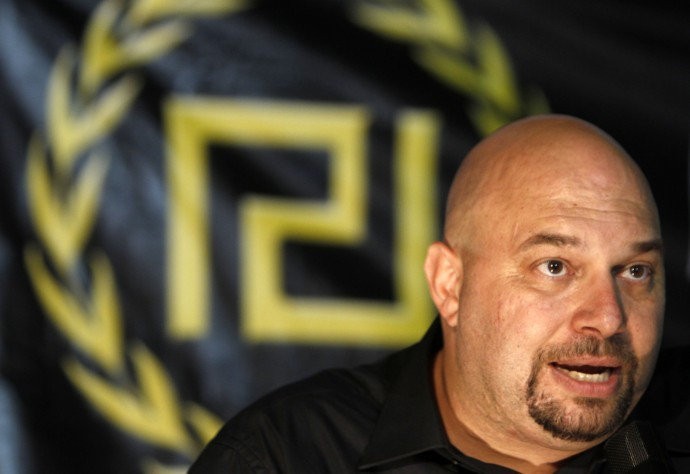
Ilias Panagiotaros of the extreme right Golden Dawn party
ReutersThe recent report that Bulgaria nationalist groups have launched patrols to attack Syrian migrants in the country is just the latest in a series of worrying developments involving neo-Nazi parties in Europe.
Since the rise of Golden Dawn in Greece, far-right parties have gathered momentum across the continent carrying with them a disturbing brand of fascism and xenophobia.
The collapse of confidence in institutions after the 2008 financial crisis, the widening gap between rich and poor, and the spread of populist and nationalist sentiment has acted as recruitment magnet for the dissafected and the angry.
At the forefront of the protest against the European Union - perceived as a bureaucratic, useless apparatus made to suck up growth -, neo-Nazis have focussed their action on the wave of migrants coming to Europe to escape from civil wars, genocides and poverty.
IBTimes UK takes a look at the most disturbing trends in Europe:
1. Slovakia's right-wing extremist becomes regional governor of Banskya Byastrica
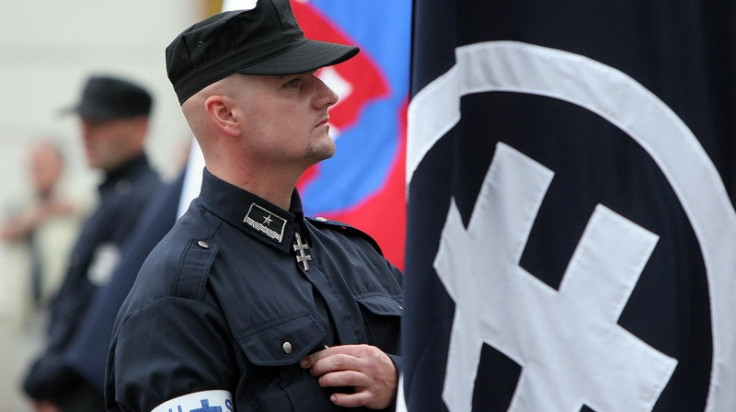
Marian Kotleba, former leader of a banned neo-Nazi organisation, won 55.5% of the vote in the run-off against Vladimir Manka from the Smer-Social Democrat party in November last year.
Kotleba, now leader of the ultra-nationalist Our Slovakia party, has called for the country to withdraw from the Nato – branded as a "terrorist" organisation. A former high school teacher, Kotleba has showed Nazi-style uniforms in public and campaigned against the Roma minority – condemned as parasites – in the country.
2. Swedish Resistance Movement attacks anti-racism demonstrators in Stockholm
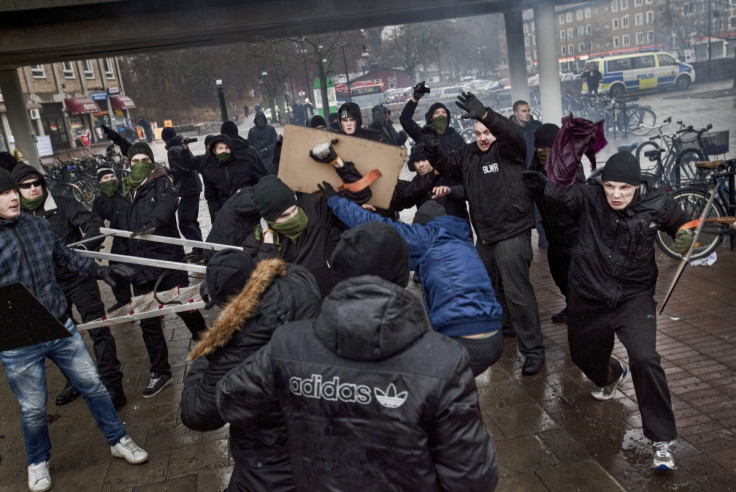
Forty far-right extremists of the Swedish Resistance Movement, a neo-Nazi group that became active in 2012, attacked with stones, bottles and fireworks a group of 200 people holding an anti-racism demonstration in Stockholm in December 2013.
The incident came as a surprise to many commentators, as Sweden is often celebrated for its inclusive public policy. PolicyMic reports that the group is known for showing Swastikas and preaching hate against non-aryans people.
3. The Nationalist Party of Bulgaria attacks Syrian migrants

The surge of nationalist sentiment in the Balkan country has led to the creation of the new Nationalist Party of Bulgaria, which groups the Formations National Resistance, the Bulgarian National-Radical party and the local branch of the international Blood and Honour skinhead network – banned in many countries.
The aim is to "cleanse Bulgaria from the foreign and alien immigrant scum that has been flooding the towns of Bulgaria". The party established "civil patrols" to stop and check migrants. After the formation of the Nationalist Party, a 17-year-old Syrian refugee was stabbed near a refugee centre in Sofia.
A wave of attacks around the capital followed, with an Iraqi-Bulgarian attacked in a shopping mall, a Malian boy beaten by a mob and a Cameroonian mother and child assaulted by a group of neo-Nazi.
4. Jobbik: Hungary's neo-Nazi party increase vote support
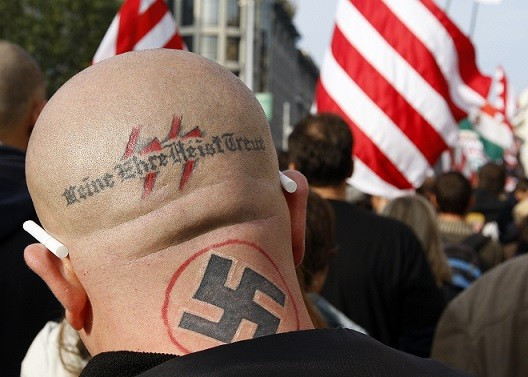
A big blow for the ultra-nationalist and anti-Semitic Jobbik party came when a former leader, Csanad Szegedi, discovered his Jewish roots and that his grandmother was a Holocaust survivor. In response to the ironic discovery, Szegedi quit the group and converted to Judaism. Szegedi's previous far-right credentials include founding the neo-fascist Hungarian Guard in 2007.
The members of the guard wore black uniforms reminiscent of the pro-Nazi Arrow Cross party, which ruled Hungary at the end of the Second World War. However, Jobbik, who holds 43 seats in the Hungarian parliament and two in the European parliament, remains powerful with an increase from 7 to 8% in the vote percentage, according to a December poll.
5. Has Golden Dawn's Peaked?
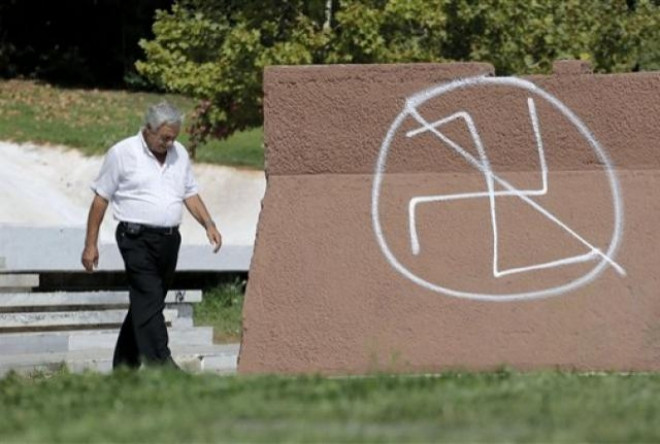
The Neo-Nazi Greek party is facing a growing crackdown at home. Greece's parliament decided to remove state funding to the party after six Golden Dawn MPs were charged of running a criminal organisation in a case triggered by the murder of anti-fascist rapper Pavlos Fyssas, nicknamed Killah P. Police arrested a 45-year-old supporter of Golden Dawn, George Roupakias, over the killing and raided party headquarters in the Greek capital and other cities.
The party leader, Nikos Michaloliakos, is currently awaiting trial on charges of running a criminal organisation.
The Greek parliament had already lifted immunity from prosecution on six neo-Nazi Golden Dawn MPs involved in the same criminal case as Michaloliakos.
© Copyright IBTimes 2025. All rights reserved.






















